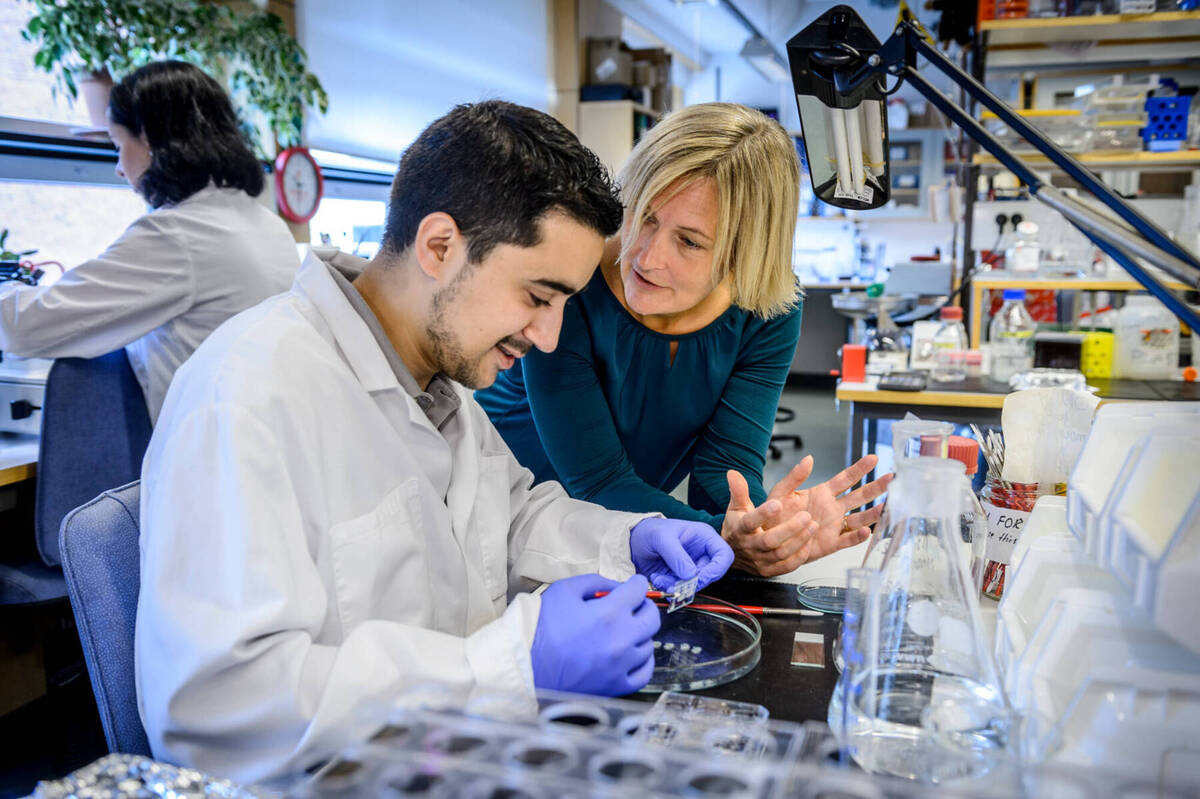Doctoral Student in Mechanisms of Neuroblastoma Metastasis and Resistance - Hiring in process/Finished, not possible to apply
This advert is not available!
Lund University, Faculty of Medicine, Dep of Laboratory Medicine, Lund
Lund University was founded in 1666 and is repeatedly ranked among the world’s top universities. The University has around 47 000 students and more than 8 800 staff based in Lund, Helsingborg and Malmö. We are united in our efforts to understand, explain and improve our world and the human condition.
Lund University welcomes applicants with diverse backgrounds and experiences. We regard gender equality and diversity as a strength and an asset.
Description of the workplace
Within the Molecular Pediatric Oncology research lab we work to understand and target childhood cancer neuroblastoma. Neuroblastoma is a solid childhood tumor derived from the sympathetic nervous system. It is responsible for 15% of pediatric cancer deaths and is characterized by its heterogeneity, ranging from benign forms to aggressive types with distant metastatic spread. Patients with aggressive neuroblastoma have a very poor prognosis, even with surgery and treatment with high-dose chemotherapy.
We have established neuroblastoma patient-derived xenograft (PDX) models by implanting neuroblastoma tissue into mice. These PDXs retain the histology and genetic aberrations of their original patient tumor and they have the ability to metastasize to distant organs. We have also established human neuroblastoma 3D organoids from the PDX tumors.
With these PDX models and organoids, we have the opportunity to investigate mechanisms of metastasis and treatment resistance and relapse and to test novel drugs that could improve the treatment of neuroblastoma.
We offer
Lund University is a public authority which means that employees get particular benefits, generous annual leave and an advantageous occupational pension scheme.
Read more on the University website about being a Lund University employee: Work at Lund University.
Work duties and areas of responsibility
In addition to following the study plan for the doctoral education, as well as participating in relevant courses for the education, the following tasks are also included:
- Take part in the laboratory work and develop methods connected to the project
- Write articles and publications together with the supervisor
- Take part in everyday laboratory planning and meetings as well as participate in journal clubs and workshops, seminars and conferences
- Some administrative duties may occur
- Some teaching may occur
- Take part in the doctoral courses provided by the department and the faculty
- Work with experimental animals is included
The doctoral student has further responsibility to:
- Seek contact with the colleagues who best support a discussion about the results.
- Find avenues for career support.
- Formulate, develop and optimize the ways of communication with supervisors and colleagues that best promote the doctoral student's working methods and aspects.
Qualifications
- Requirements for employment are:
- The applicant must be highly talented and highly ambitious. The applicant should have knowledge and documented experience within the field of laboratory medicine in general and in cancer in particular.
- Specifically, experience of the in vitro tumor organoid culturing, in vitro drug testing, cell viability assays, cell death assays and immunofluorescence.
- The applicant should be fluent in English.
Emphasis will be put on personal qualities. We are looking for someone who is driven, curious and taking responsibility. As the research group has an international environment, good communication skills and collaboration skills are required. In addition, the duties require organizational skills and ability to prioritize duties.
Additional qualifications for the position are:
- Knowledge of neuroblastoma research.
Further information
Temporary employment of four years, in accordance with the Higher Education Ordinance-
HF 5 kap 7§ in Sweden. The employment is a full term position with the desired start date of February 1st, 2025, or according to agreement.
Eligibility
Students with basic eligibility for third-cycle studies are those who
- have completed a second-cycle degree
- have completed courses of at least 240 credits, of which at least 60 credits are from second-cycle courses, or
- have acquired largely equivalent knowledge in some other way, in Sweden or abroad.
Assessment basis
The employment of doctoral students is regulated in the Swedish Code of Statues 1998: 80. Only those who are or have been admitted to PhD-studies may be appointed to doctoral studentships. When an appointment to a doctoral studentship is made, the ability of the student to benefit from PhD-studies shall primarily be taken into account. In addition to devoting themselves to their studies, those appointed to doctoral studentships may be required to work with educational tasks, research and administration, in accordance with specific regulations in the ordinance.
How to apply
Applications are to be submitted via the University’s recruitment system. The application is to include a personal letter justifying your interest in the position and how it matches your qualifications. The application is to also include a CV, degree certificates or equivalent and any other document to which you would like to draw attention (copies of grade transcripts, details of referees, letters of recommendation, etc.).
| Type of employment | Temporary position |
|---|---|
| First day of employment | 1 February 2025 or by agreement |
| Salary | Monthly salary |
| Number of positions | 1 |
| Full-time equivalent | 100 |
| City | Lund |
| County | Skåne län |
| Country | Sweden |
| Reference number | PA2024/3549 |
| Contact |
|
| Union representative |
|
| Published | 19.Nov.2024 |
| Last application date | 10.Dec.2024 |

